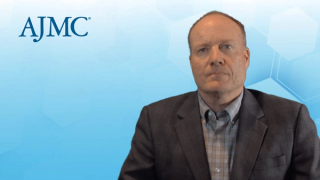
Small Cell Lung Cancer
Latest News

Latest Videos

CME Content
More News

In a small study, lactotransferrin (LTF) was identified as a potentially important biomarker in extensive-stage small cell lung cancer (SCLC).

One study showed small cell lung cancer (SCLC) tumors with higher DNA damage response (DDR) activity were initially more sensitive to chemotherapy but had worse overall survival.

Combining BET inhibitors and PARP inhibitors might help patients resistant to chemotherapy, the study suggests.

Artificial intelligence (AI) is emerging as a tool that can improve patient outcomes and provider care efficiency, says Douglas Flora, MD, FACCC, of St. Elizabeth Healthcare.

Artificial intelligence (AI) helps a Sarasota, Florida, health system catch lung nodules that appear on CT scans for patients treated for scores of conditions, allowing them to be referred for a possible lung cancer diagnosis.

Dosing has started in a clinical evaluating peluntamig, which targets DLL3 and CD47, combined with chemotherapy in patients with DLL3-expressing small cell lung cancer and neuroendocrine carcinoma.

When added to chemotherapy, researchers found no significant difference in overall or progression-free survival between PD-1 and PD-L1 inhibitors.

SEER data show that small cell lung cancer (SCLS) incidence has steadily declined due to reduced smoking rates, but survival outcomes have seen only minimal improvement, underscoring the need for more effective treatments.

According to research, PSAT1, PSRC1, COLEC12, HP, and PLLP may play a role in small cell lung cancer metabolism, immune response, and tumor progression, though more research is needed.
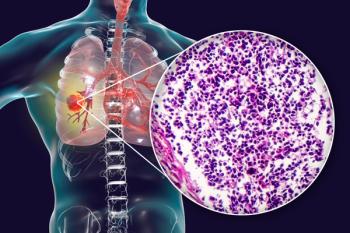
Newer treatments target pathways like Delta-like ligand 3, poly-ADP-ribose polymerase, and histone deacetylase to address small cell lung cancer's aggressive nature and resistance to conventional therapy.

Trilaciclib significantly reduced chemotherapy-induced myelosuppression in extensive-stage small cell lung cancer, which authors say minimizes the need for supportive care.

Small cell lung cancer (SCLC) is strongly linked to smoking, with about 80% of lung cancer deaths attributed to tobacco use.

Some populations face significant disparities in accessing lung cancer screening facilities, with American Indian/Alaska Native (AI/AN)-majority and rural census tracts facing the greatest travel distances.
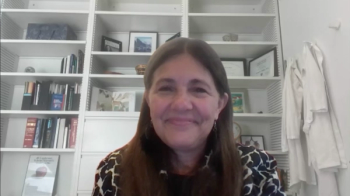
Heather Wakelee, MD, Stanford University, discusses the pros and cons of different durations of immunotherapy in non-small cell lung cancer (NSCLC) and the future outlook for patient-specific care.

Bellinda King-Kallimanis, PhD, LUNGevity Foundation, reflects on her experiences in patient-focused research to discuss the current state of patient education, the importance of patient advocates, and mediating barriers to health care access.
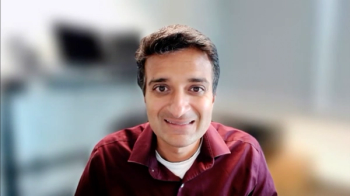
The 2024 World Conference on Lung Cancer (WCLC) marks the 50th anniversary of the International Association for the Study of Lung Cancer. Sandip Patel, MD, joined for an interview looking forward to the unique features of this year's meeting.

A high number of adverse events were reported in a late-stage trial conducted by Merck for treatment in lung cancer.

This editorial describes the need for a system that helps primary care physicians prioritize shared decision-making for preventive services.

The FDA has approved tarlatamab (Imdelltra; Amgen), a novel bispecific T-cell engager, to treat patients with extensive-stage small cell lung cancer (SCLC).
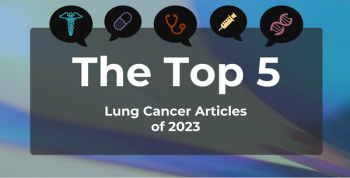
Our most-read content that featured lung cancer included articles on non–small cell lung cancer, how navigation programs can increase screening rates, and a potential link between antidepressants and lung cancer risk.

Mark A. Socinski, MD, executive director at AdventHealth Cancer Institute, discussed the emergence of targeted therapies for lung cancer and their ongoing impact on outcomes for certain patients.

The treatment developed by Amgen could be the first therapeutic option approved for third-line treatment of advanced small cell lung cancer (SCLC).

Improved psychological distress and physical function were among the benefits of doing aerobic exercise and tai chi as a patient with lung cancer.
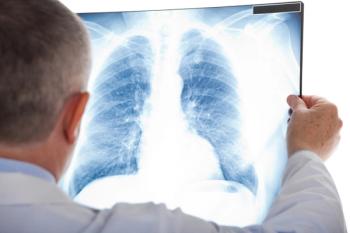
A risk prediction model that was based on machine learning could help to make resource utilization more efficient by correctly predicting emergency department (ED) visits in patients with lung cancer.

Early CT screening leads to a 20-year lung cancer survival rate of 81%.









